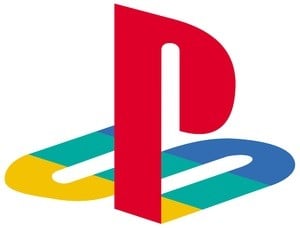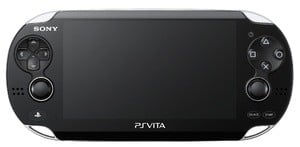
“I don’t know what you’re talking about,” joked Sony Worldwide Studios’ jovial executive, Shuhei Yoshida, when quizzed about the PlayStation 4 earlier in the year. Yoshida was, of course, lying: we’d be both amazed and worried if the likeable executive – who’s responsible for the entirety of Sony’s first-party software line-up – wasn’t aware of the platform holder’s future console plans. But while Sony itself is keeping tight-lipped about the future, it’s clear from recent rumours that preparations are being made behind the scenes. The big question is: what can we expect?
Learning from the past
The video game industry, more than most, is a sector defined by transition. In 1994, Sony disrupted Nintendo and SEGA’s chokehold on the market with the release of the original PlayStation. Forward-thinking, trendy and fresh, Sony brought an entirely new mentality to the video game industry — a philosophy it honed with the release of the unstoppable PlayStation 2 in 2000. But transition doesn’t always bring about success, and the company quickly found itself humbled by the faults of the PlayStation 3: over-engineered and put on the market about 12 months too late, the PS3 almost crippled Sony. A hearty rebranding effort – buoyed by an affordable price point – helped to catapult the PlayStation 3 back into relevance, but the distress of the system’s opening years still sit upon the platform’s shoulders like a lead weight.
The repercussions of the PlayStation 3’s troubled launch will certainly affect its successor's design, but we doubt Sony will compromise. Some have suggested that the Japanese giant will follow in Nintendo’s footsteps, crafting a slightly underpowered but crucially affordable system, as opposed to a powerhouse. But that’s just not in the company’s DNA, and it doesn’t consider current trends. Indeed, the strongest indicator we have of the PlayStation 4’s direction is just hours away from release: PlayStation Vita.
What the PlayStation Vita can teach us about the PS4

PlayStation Vita personifies Sony in a post-Ken Kutaragi world: modest and nimble, but not ignorant of former values. The system still possesses the same cutting edge flare that’s defined each of Sony’s platforms to date, but it’s much more reasonably anchored: the system’s built around mostly “off-the-shelf” components, and it’s considered by some developers to be the easiest PlayStation platform to develop for.
It’s an intentionally different philosophy to the one Sony adopted for the PlayStation 3, and, it gives us a taste of what we can expect from the PS4. It should come as little surprise that the re-evaluated approach comes from the fresh perspective of new personnel.
“When Kaz Hirai took over management of SCE he brought in the approach of fully integrating software and hardware development,” Yoshida revealed in an interview published on the PlayStation Blog. “Before that, we made brilliant hardware, no question of that, but our hardware team didn’t have such a good understanding of what game developers need or what features might be useful.”
PlayStation 4 won't be a cheap device, but we get the impression Sony’s learnt its lesson from Kaz Hirai’s infamous “599 US dollars” quote.
The solution – in the case of the PlayStation Vita – was to introduce Sony’s growing stable of first-party developers into the hardware production process, an approach that the company’s almost certain to adopt for the PlayStation 4.
“I think of all the PlayStations I’ve worked on, which is actually all of them, it’s the easiest one to work with,” said Sony Studio Liverpool’s Stuart Tilley. “The guys have given us a really good set of tools, allowing us to get up and running a lot quicker than we have previously, which is really good.”
It’s a feat that contrasts heavily with the PlayStation 3’s early years, in which third parties frequently lamented the system’s complex architecture. Those complaints allowed the Xbox 360 to become the default development platform for most third-party studios, an error that the platform holder will be keen to address with the PS3’s successor.
Given developers’ acceptance of PS Vita, it’s almost certain that Sony will adopt a similar methodology for the construction of the PS4, and the signs are already there. EDGE magazine recently reported that the company’s already enlisted the support of one of its major first-party developers, a studio that's apparently put to bed PlayStation 3 production and is now said to be heavily involved in “the development process of the graphics technology adopted by Sony’s new hardware”.
It’s a statement that, pending the rumour’s validity, all but confirms Sony’s open design approach for the PS4 – and it suggests that we should assume a much more versatile and accessible system when it’s announced.
But while a more stable development platform is guaranteed, the biggest concern for consumers will be price. Sony’s never targeted a mainstream audience at launch, preferring to capture a wider audience with rebranding and system redesigns. As such, it’s unlikely that the PlayStation 4 will be a cheap device, but while price is an impossible thing to predict, we get the impression Sony’s learnt its lesson from Kaz Hirai’s infamous “599 US dollars” quote.
Yoshida’s mentioned in multiple interviews that Sony targeted the PlayStation Vita’s $250 price-point from the project’s start. We’d expect the platform holder to make a similarly hard target for the PlayStation 4 and stick to it, but the number itself is impossible to predict.
We wouldn’t be surprised if the next edition of the PlayStation Eye came equipped with Kinect-esque voice and body recognition capabilities.
Whatever the price, it was speculated earlier in the year that we’d find out a lot more about the next home PlayStation at E3 2012. New SCE president and former SCEE executive, Andrew House, was keen to dismiss those rumours at CES, stating: “I don’t think we’re contemplating talking about anything to do with future console iterations at this point.” We don’t think House is lying: it’s likely that Sony’s taken a good long look at Nintendo’s approach with the Wii U and decided it doesn’t necessarily need to act fast. It’ll probably have a much closer eye on Microsoft, who has also denied it’s preparing the Xbox 360’s successor for E3.
The big question is whether Sony will opt to bundle any motion controls with its new platform. PlayStation Move has been successful, but it’s never been promoted as a pivotal part of the PlayStation 3 experience like the Wii Remote or Kinect sensor. In a way, both Nintendo and Microsoft are tethered to their respective motion technologies, with neither manufacturer able to ship a new console without the input systems in tow. That might allow Sony to go the technical route, and outmuscle the two at a similar price. But the Nintendo Wii’s proved that motion controls are important when targeting a mainstream audience, and we wouldn’t be surprised if the next edition of the PlayStation Eye came equipped with Kinect-esque voice and body recognition capabilities. Whether it will be included within the PS4’s box at launch remains to be seen.


Comments 8
600 dollars... Something must've been up with Kaz when he said that...
Sometimes I wish that we could have just stuck with older consoles... sigh. The PS1 was an awesome system.
@ryanthehedgehog You wouldn't be saying that if you had a PSone while everyone else was enjoying online gaming and HD
agree with ryanthehedgehog . you can keep your pS4's , wii Z's , and xBox1440's . online gaming ? no thanks . HD is great - never realised that there were so many shades of grey and brown !
(i'm glad i'm stuck in 16bit wonderland)
@eliotgballade I thought you'd have made it to 128-bit at least judging from your avatar
@James
well spotted matey ! blue stinger on dreamcast is my favourite game of all time.
talking of future consoles (like we were) such a shame there will never be a dreamcast 2 ? (never say never!)
@eliotgballade That's a nice story grandpa, now tell us the one about when you fought in the civil war!
Actually, I'm also missing those old good days, when I've got my original PS. Crash Bandicoot, Spyro, TM2... Best games of my childhood!
Show Comments
Leave A Comment
Hold on there, you need to login to post a comment...